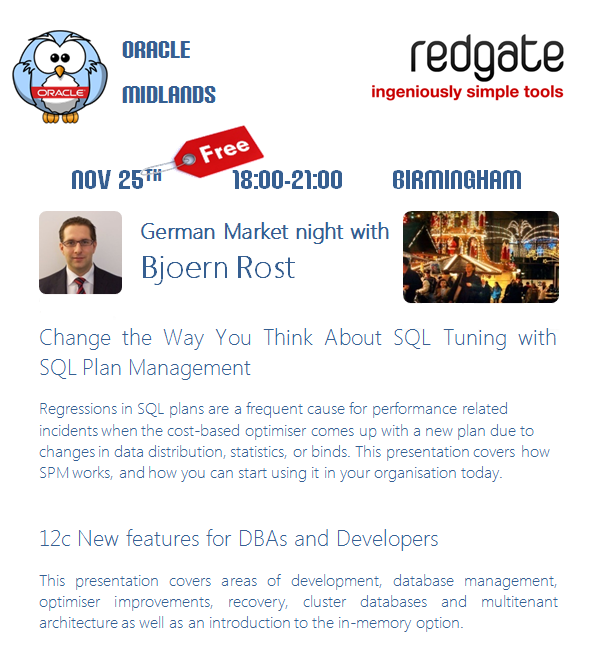I leave for Oracle OpenWorld 2014 tomorrow, which is normally a time when I’m super amped up, but I feel rather flat and in need of change at the moment. I just feel like I’m investing a massive amount of my time on things I don’t enjoy and are not really benefiting me or the community at large, so what’s the point?
What do I enjoy?
- Playing with technology.
- Writing articles and blog posts about it.
- Meeting and talking to people about this stuff.
What don’t I enjoy?
- I don’t really enjoy answering questions on forums any more. For every one good interaction I have, there seems to be about 10 where people refuse to think for themselves and treat me as their own personal slave.
- I’m getting an increasing number of people asking me questions on Facebook and Google+ chat. Not only does this have a similar ratio of good:bad interactions, but there is nothing left behind that helps other people. There is no content produced that allows others to answer their own questions from a Google search. This feeds into the dependency cycle.
- Cleaning up the massive amounts of spam I get.
- Dealing with the endless stream of people wanting me to help advertise their product or website.
This is not a business for me. It’s fun. When it ceases to be fun, what’s the point?
At the moment, I feel like:
- Locking the forum.
- Locking the article comments.
- Blocking the comments on my blog.
- Deleting all emails that include technical questions, without even reading them.
- Ignoring requests for help on all social media.
This would allow me to spend a lot more time playing with Oracle and writing articles, which I feel benefits myself and others to a greater extent than what I’m doing now.
If I look at my web stats, they seem to back up my opinion. The vast majority of hits on my website are for content. Only a very small proportion relate to “interaction”, yet it is this interaction which takes up the vast majority of my time.
I guess some people would see this as going against the whole ethos of the ACE Program, but I don’t think so myself. I think I’m more use to the community by putting out content, rather than doing what I’m doing now.
Maybe I’ll come back from OOW and have a change of heart. Maybe not. Time will tell.
Cheers
Tim…
Update: Some people have taken this post as a message that I’m going to stop writing articles. I think the post is pretty clear on that front. This is about giving me more time to write articles. 🙂
Update 2: The forums are locked while I’m at OOW. I’ll decide if they will stay locked once I get back to the UK.
